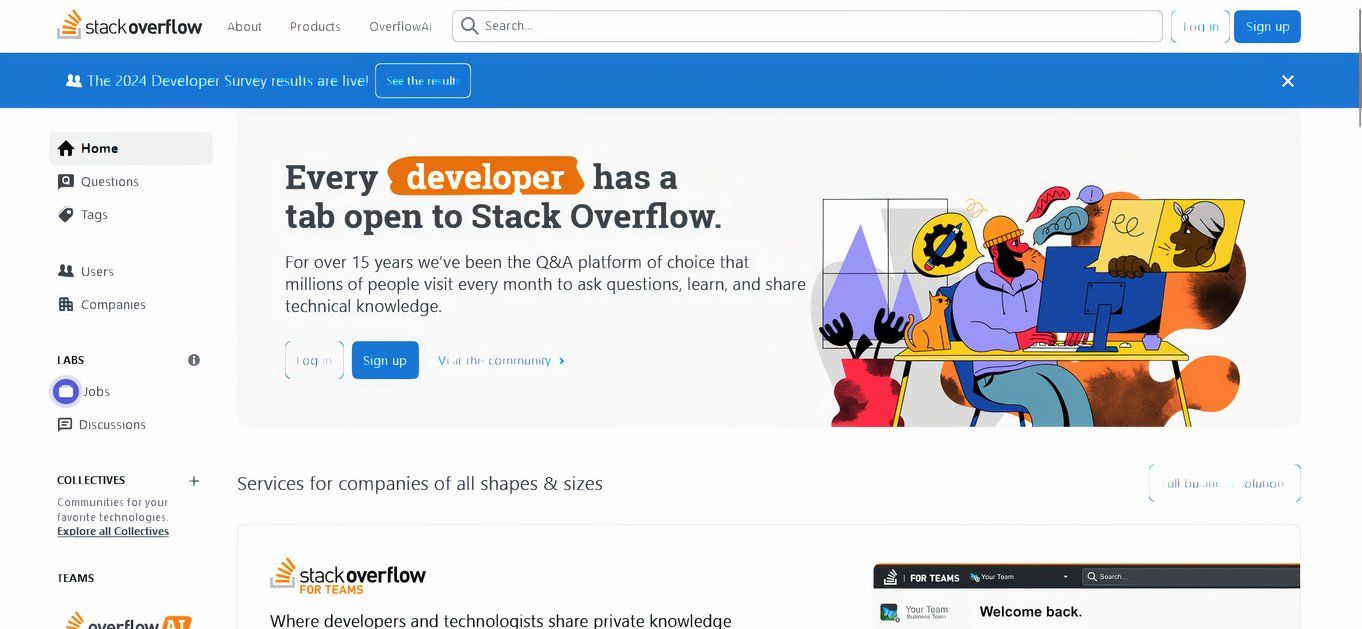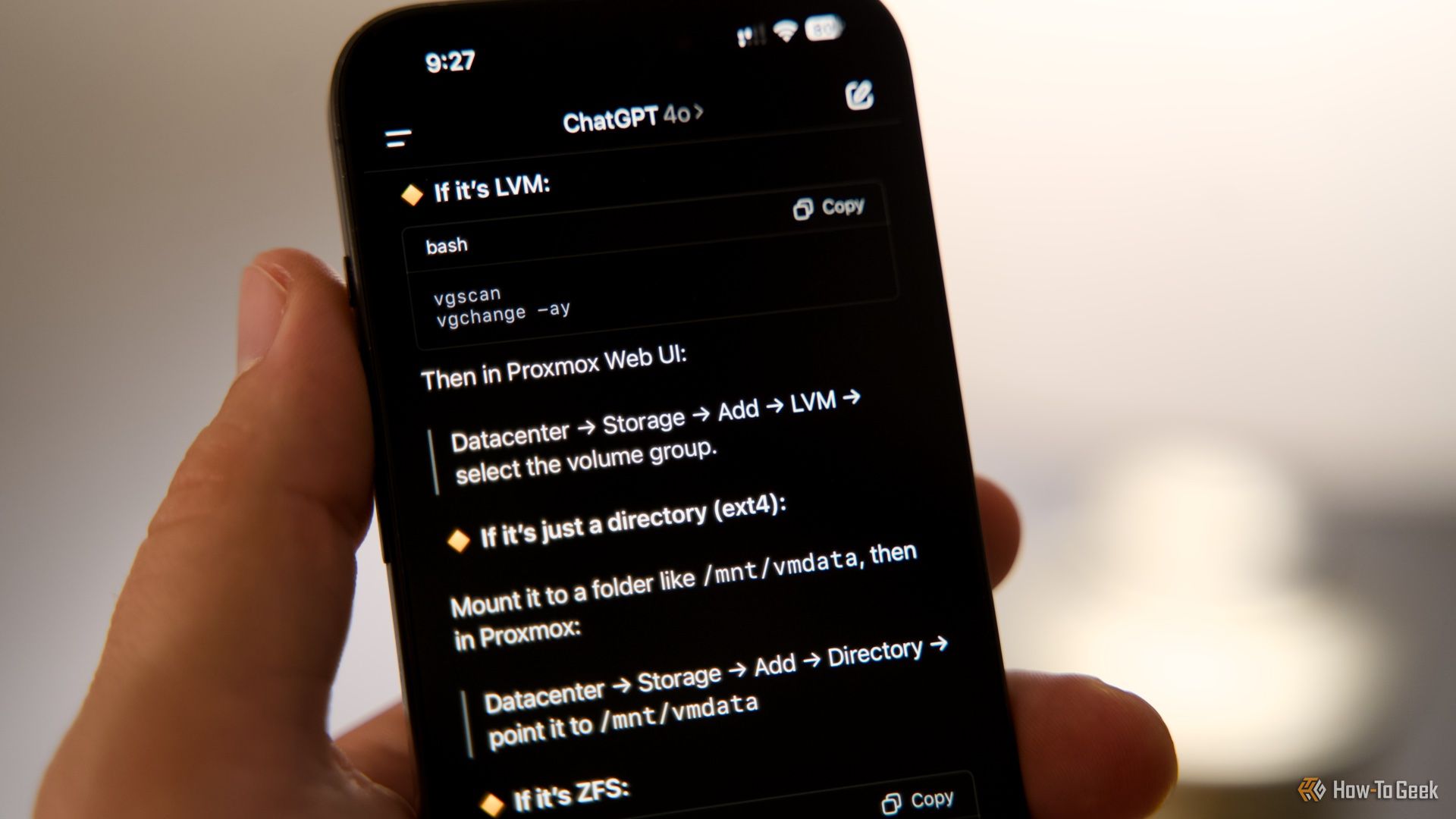Developer Offer
Try ImaginePro API with 50 Free Credits
Build and ship AI-powered visuals with Midjourney, Flux, and more — free credits refresh every month.
How ChatGPT Became My Ultimate Homelab Sidekick
I was initially skeptical about ChatGPT and doubted I would find a real use for it. However, I’ve since discovered it’s the perfect unpaid assistant for my homelab, helping me solve technical challenges I previously struggled with.
The Old Way: Endless Searching on Google and Forums
For over a decade, my life in programming and Linux systems administration has been a self-taught journey. Whenever a problem arose, my standard procedure was to turn to Google, various forums, or knowledgeable friends. This method worked, for the most part, but it was incredibly time-consuming.
As someone without formal training in Linux, I often found myself wrestling with concepts that were simple for others. This meant hours spent digging through countless forum posts and crawling all over assistance sites like StackOverflow, all in the hopes of finding that one specific command or solution I needed.

Eventually, I would find the right combination of search terms to land on the necessary information. However, the journey there was often frustratingly long. I could easily spend an entire day troubleshooting a single server issue, leaving no time for the actual website development I had planned.
The Frustration of Generic Solutions
A significant part of the delay was that most solutions I found online didn't apply to my specific setup. For example, my preference for NGINX over Apache meant that many helpful posts addressing my exact problem were not directly transferable. While the core techniques might be similar, adapting them without formal knowledge is a challenge.
This forced me to continue my search for that 'diamond in the rough'—a post from someone with a nearly identical configuration. When that failed, my last resort was often an IRC server, where I’d wait and hope for an expert to respond.
A Game Changer: Personalized Advice from ChatGPT
Despite my initial reservations, I've grown to love ChatGPT for its incredible utility in my homelab. I can describe my entire setup in detail—the operating system, network card, installed drivers, and software—and it provides tailored advice.

This has been invaluable. In about nine out of ten cases, ChatGPT helps me resolve whatever issue I'm facing. Whether I'm tackling a frustrating MySQL database problem or troubleshooting a website's HTTP 413 error, I can use ChatGPT to pinpoint the cause and fix it. The best part is the conversational nature of the process; I can ask a question, apply the advice, and report the results back to ChatGPT to continue troubleshooting, much like talking to a live systems administrator.
My use of ChatGPT has expanded beyond just Linux support. I’ve used it to reverse-engineer CSS from a website I admired, rebuild Docker containers with missing dependencies, and even discover new and exciting projects to host in my homelab.
When AI Hits Its Limits: A Reality Check
ChatGPT isn’t a silver bullet. A few weeks ago, a game server I host for a friend suddenly stopped working. I spent a couple of hours troubleshooting with ChatGPT, but we couldn't find a solution. It turned out that ChatGPT's knowledge base was not current enough to know the game developer had broken Linux compatibility just days earlier.
However, it wasn't a total failure. By feeding the server's console output to ChatGPT, it helped me sift through a mountain of errors and identify the core problem: a set of missing libraries. Armed with this specific information, I turned to Google and quickly found an obscure Reddit post detailing the issue. Without ChatGPT, I wouldn't have known where to even begin my search. This experience showed me that ChatGPT and Google are powerful tools that work best together.
A Word of Caution: Trust but Verify
Before you start running every command ChatGPT provides, a word of warning is necessary. The AI is not infallible and can produce incorrect or even dangerous commands. Over the years, I've become familiar enough with the Linux command line to understand the basic function of most suggestions, like ps aux for finding processes or kill for terminating them.
If ChatGPT suggests a command I've never seen, I always research it first. The last thing anyone needs is to accidentally run a command that looks harmless but actually functions like rm -rf /, a command famous for deleting everything on your system. Always take AI-generated advice with a grain of salt and run commands at your own risk.
Ultimately, ChatGPT is a powerful piece of software. To get the most out of it, it helps to understand how ChatGPT works and be aware of some of its limitations. At the end of the day, ChatGPT is an excellent tool for learning Linux, as it can scan the internet in seconds and tailor the information it finds directly to your needs and skill level.
Compare Plans & Pricing
Find the plan that matches your workload and unlock full access to ImaginePro.
| Plan | Price | Highlights |
|---|---|---|
| Standard | $8 / month |
|
| Premium | $20 / month |
|
Need custom terms? Talk to us to tailor credits, rate limits, or deployment options.
View All Pricing Details

